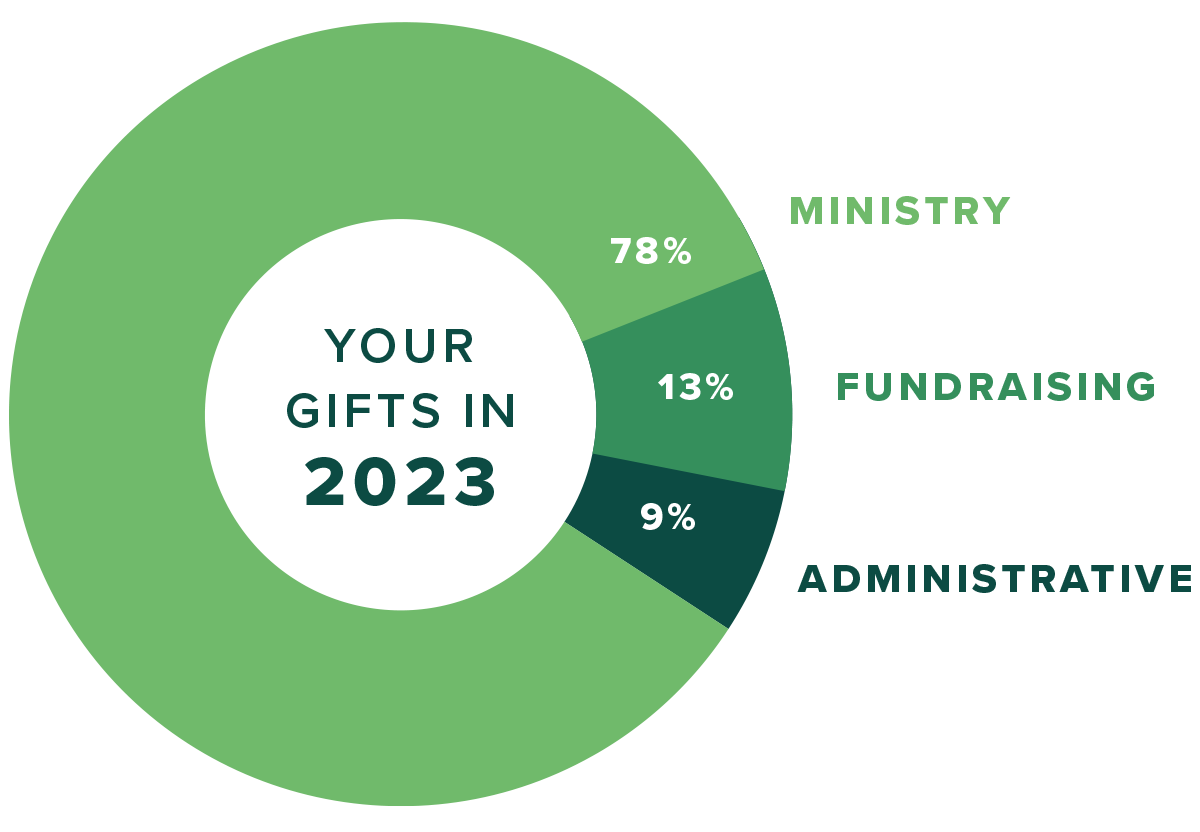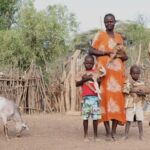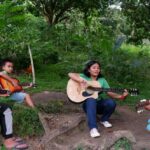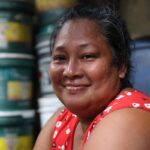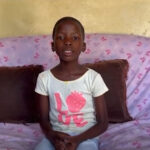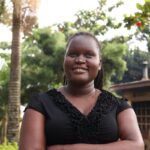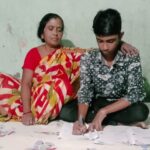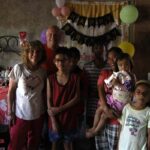A Young Mother Stands Her Ground
Despite her shattered dreams, a young widow in India defies prejudice and superstition by holding onto hope for herself and her children.
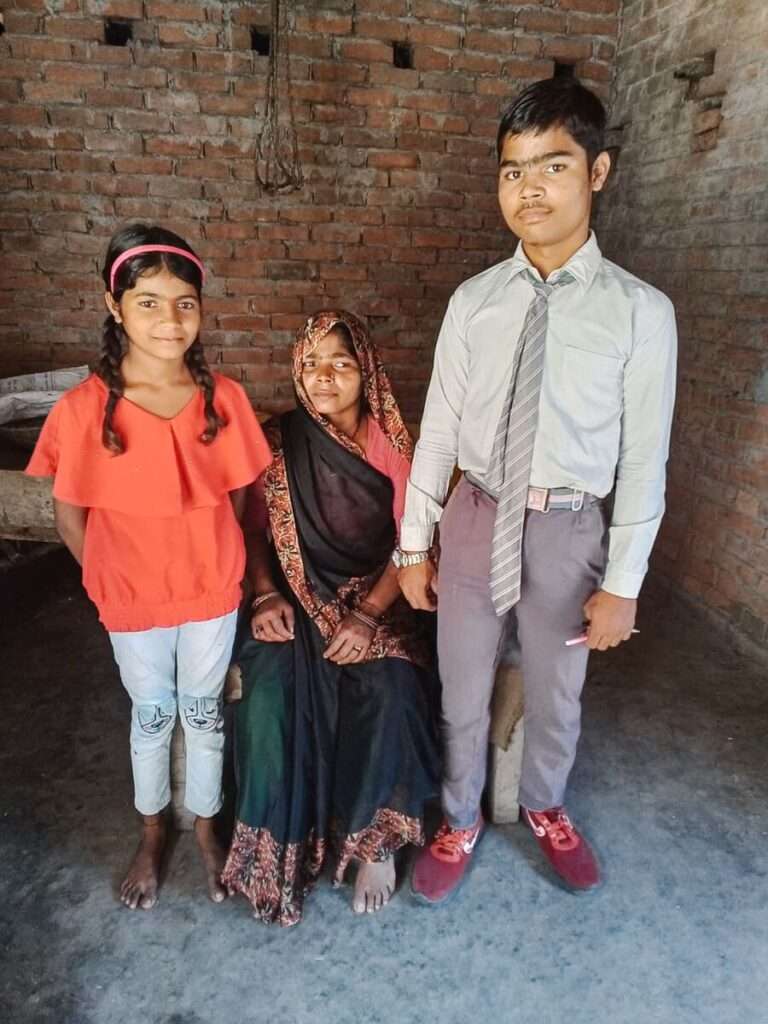
Kareena with her daughter and son.
In a rural village in India, a remarkable woman named Kareena embarked on a journey of resilience and strength that transformed her into a true warrior.
Kareena’s* life is a testament to the power of unwavering resolve in the face of unfathomable hardships, adversity, and societal prejudice.
This is the story of Kareena’s extraordinary journey of overcoming adversity, paving the way for her children’s education, and inspiring others to find strength in their own lives.
Dreams Cut Short
Kareena’s journey began in the small village where she was born, a place where traditions and customs are deeply entrenched in the fabric of everyday life.
At the tender age of 16, her life took a significant turn when her parents arranged her marriage to Dhruv. Despite her youth, this union marked the beginning of a life filled with hopes and dreams for the young bride.
The early years of their marriage brought joy with the birth of a son and the anticipation of a daughter. However, this happiness was soon overshadowed by a devastating illness.
Kareena and Dhruv’s world was turned upside down when Dhruv was diagnosed with cancer.
The relentless disease cast a dark shadow over their lives as they grappled with the emotional and financial burden of his deteriorating health. As a loving wife, Kareena felt the weight of her husband’s suffering, while she also suffered fevers and physical pain caused by the overwhelming fear and worry that gripped her.

Kareena and her daughter Arpita prepare a meal outside.
Her husband’s illness revealed the grim reality of health care disparities in rural areas, where even basic medical treatment may be unavailable or financially crippling when it is available.
Fighting the cancer plunged the already impoverished family further into distress. Their children went hungry, and they couldn’t afford his much-needed medicines.
Dhruv ultimately lost his battle with cancer, passing away shortly after their daughter Arpita was born.
Cruelty Instead of Comfort
As Kareena grieved the loss of her beloved husband and provider, she also faced the scorn of her community.
At a time when they needed support and comfort from their neighbors, Kareena and her family were subjected to harassment, taunts, and accusations based on prejudice and superstition.
The most egregious of these prejudices came in the form of an accusation that Kareena’s newborn daughter was a “bad omen,” especially since her husband died soon after the birth — an idea rooted in bias against women and girls.
The idea that a girl child can bring bad luck is an age-old belief that continues to perpetuate cruel stereotypes, reinforcing gender inequality.
Kareena’s story is not uncommon, steeped as it is in the traditions and gender biases prevalent in rural Indian society. Despite many government initiatives to promote equality for women, such as the “Save the Daughter, Educate the Daughter” campaign and National Girl Child Day, bias against women and girls still exists.
Traditionally, Indian culture holds women in high regard, often revering them as mothers, sisters, and sometimes even goddesses. This respect for women is reflected in cultural practices, rituals, and festivals.
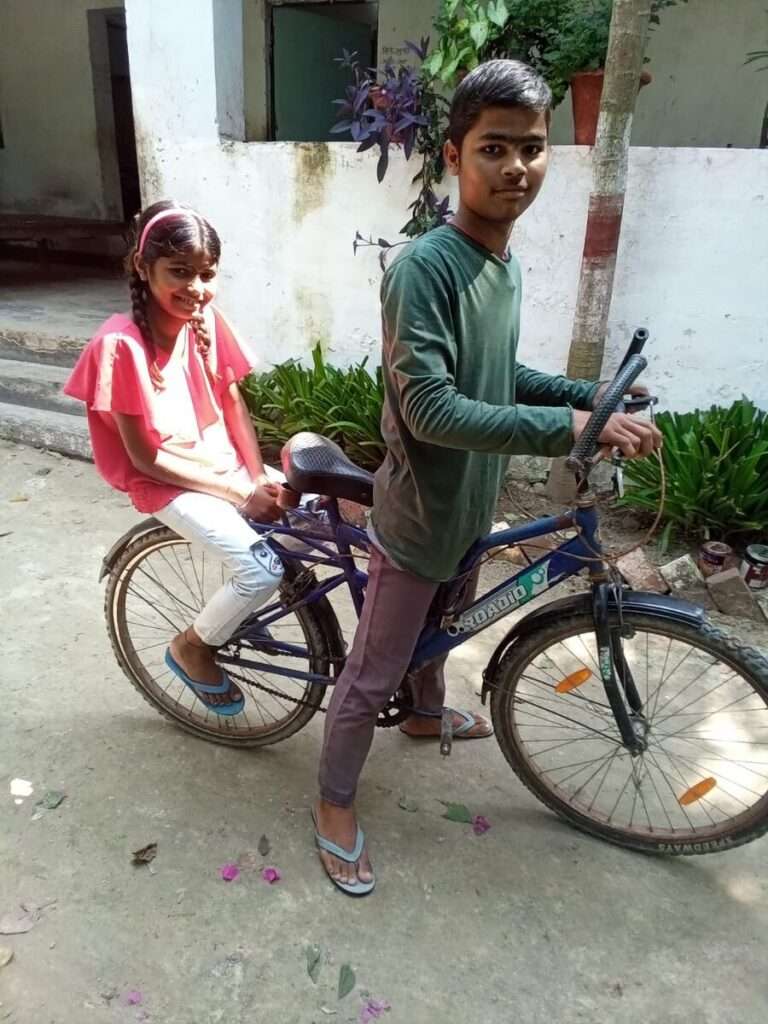
Kareena’s children, Arpita and Aakash, ride a bike around their home.
Ironically, however, rural women also bear the brunt of limited access to resources, services and information, especially in times of crisis.
They also shoulder the weight of caregiving and household duties, while facing deeply ingrained discrimination.
The Stigma of Widowhood
In addition to these challenges, when a woman is widowed in a rural area, her situation can go from hard to desperate because of long-held superstitions that view widows as bad luck.
As a result, widows often face social stigmatization. They may be ostracized or even blamed for their husband’s death. Such superstitions caused Kareena’s neighbors to turn against her.
Each day, Kareena braved jeers and accusations, and she was shunned from attending weddings and other important ceremonies in the community because she was now a widow.
Her nights were filled with tears, and her days were spent contemplating an uncertain future.
A Supportive Family
Traditionally, when a girl is married, she goes to live with her husband and his family in their home. When she is widowed, she may be shunned not only by her husband’s family but also by her own, since after marriage she is considered the other family’s property.
But Kareena’s in-laws and parents were different. Despite the societal prejudice and her own struggles, Kareena found strength in the kindness of family.
Rather than shunning her, Kareena’s parents and in-laws both provided support during her husband’s illness. And after his passing, they helped as much as they could to ease her immediate financial burdens.
This support was a lifeline in her darkest hour, giving Kareena the courage to push ahead and remain in the village despite her treatment there.
However, Kareena was still concerned about the uncertain road ahead, wondering how she would care for herself and her children.
Hope in the Gift of a Buffalo
A real turning point for Kareena came through a loving gesture from her late husband’s sister. In addition to providing Kareena and her children with food during their time of grief, her sister-in-law also gifted them a water buffalo.

Kareena’s sister-in-law gifted her family a water buffalo, which produces milk they can consumer as well as sell.
The buffalo provided Kareena and her children a means to sustain themselves. They could sell the milk it produced, which provided for her children and restored Kareena’s confidence.
“My husband’s sister helped us a lot in our difficult time,” says Kareena. “She helped me to gain my confidence and to start a life so that I can protect my children and give them a good education.”
This gift symbolized a new beginning, a chance for Kareena to rebuild her life and safeguard her children’s future.
Kareena’s unwavering determination became the driving force behind her transformation. With this help, she found the strength to carry on, protecting her children and advocating for their education.
“I faced lots of problems every single day, but I didn’t give up,” she says. “I was still trying to reach a certain goal where I can help my children when they grow up. I wanted to give them proper education. My children were my strength.”

Kareena meets with her children’s Child Champions from the Hope Center.
Kareena’s son, Aakash, recognized his mother’s strength.
“My mother is everything for us,” he says.
“I love my mother. I pray to my God that he gives all the happiness and joy to my mother, and I always pray for her health that she always stays happy and healthy.”
Another Ray of Hope
The next blessing in Kareena’s life came when she discovered a OneChild Hope Center near her home. As a school, the Hope Center offered free education to children living in poverty.
With the Hope Center’s support, Kareena’s children gained admission to the school, significantly reducing the family’s financial burdens. And the Hope Center provided more than just an education — it offered a ray of hope and a lifeline to a better future.
Kareena remains immensely grateful to the Hope Center Director for his unwavering support.
Not only did the Hope Center lighten the family’s financial difficulties, it also instilled hope in the hearts of her children. For the first time, they could aspire to a future free from the shackles of poverty and prejudice.
The brave widow and her children had finally found a place of acceptance and community.
Inspiring Others to be Strong
Although the loss of her beloved husband Dhruv has left a void that’s challenging to fill, Kareena’s resilience endures.
Through her determination in the face of grief and cruelty, Kareena defied gender bias and superstition, breaking free from the oppressive constraints that widowhood had imposed on her.
And Kareena hopes that her story can inspire and empower others.
“After going through lots of sorrow, I have the courage to bear the sorrow,” Kareena reflects. “Listening to my story, others might get inspired and find strength in their own lives.”
It is clear that Kareena’s strength is already a source of inspiration to her daughter, Arpita.
“The most important quality of my mother is that she never left us in her hour of sorrow, and she supported us all the time,” Arpita says. “I love my mother. When she was ill, she cooked food for us. When she did not have money, still she bought new clothes for us.
“I want to become as strong as my mother when I grow up.”
*All names have been changed for family privacy.
You can help OneChild reach more kids in hard places with a gift to the Partners Fund.
We are accountable to the children we serve AND to our donors.
Our accountability to our donors is one of our highest priorities. Our goal is to use the funds entrusted to us as wise stewards. To do this requires continued monitoring of our fund distribution. OneChild is also a member in good standing with the Evangelical Council for Financial Accountability (ECFA)
